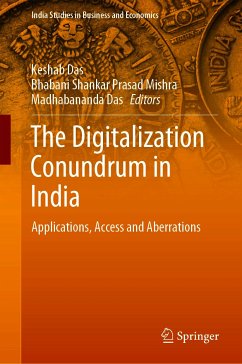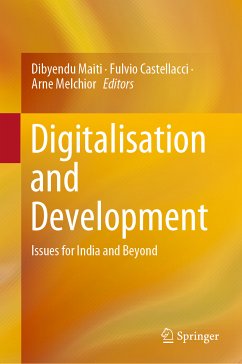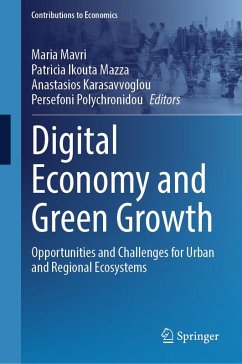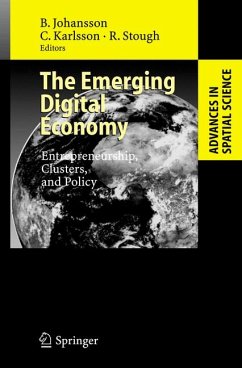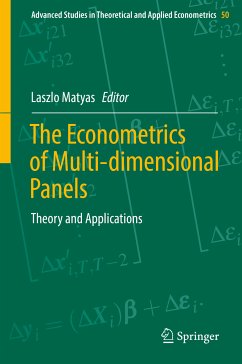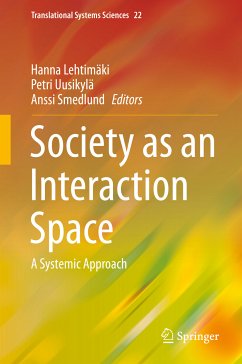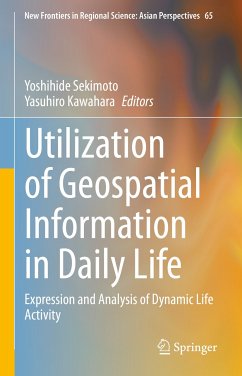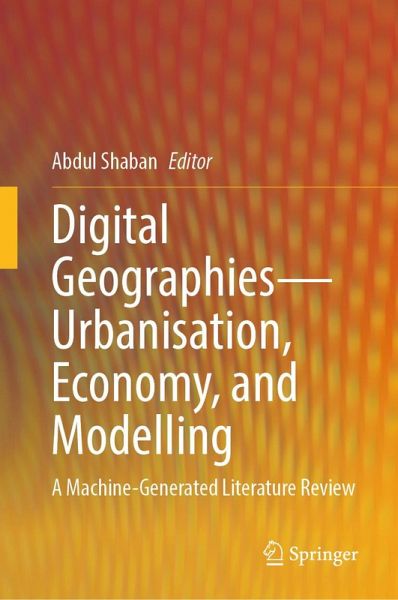
Digital Geographies-Urbanisation,Economy,and Modelling (eBook, PDF)
A Machine-Generated Literature Review
Redaktion: Shaban, Abdul
Versandkostenfrei!
Sofort per Download lieferbar
176,95 €
inkl. MwSt.
Weitere Ausgaben:

PAYBACK Punkte
88 °P sammeln!
This machine-generated volume, with chapter introductions by the human expert, of summaries of the existing studies furthers our understanding of the impact of digitalisation on spaces, their imaginations and representations. It brings out the digital territorial and socio-economic digital modelling and representation methods. The virtual spaces, created by GIS, photoshopping, games, etc., have become an area of interest for many as they produce spatial imaginaries having social, political and individual consequences. It delves into the literature on digital capitalism and how it is giving bir...
This machine-generated volume, with chapter introductions by the human expert, of summaries of the existing studies furthers our understanding of the impact of digitalisation on spaces, their imaginations and representations. It brings out the digital territorial and socio-economic digital modelling and representation methods. The virtual spaces, created by GIS, photoshopping, games, etc., have become an area of interest for many as they produce spatial imaginaries having social, political and individual consequences. It delves into the literature on digital capitalism and how it is giving birth to a new mode of expansionary capitalism to reap the surplus values and profits from peripheries and drain the same to the core. It shows how digitalisation has enabled enterprises to operate from a virtual space with strong spatial networks. Mega digital enterprises together control a trillion-dollar economy having massive consequences for digital labour, welfare of consumers, and development geographies.
This book explores some critical questions while generating summaries of existing literature: How do imaginaries, models or virtual realities help us comprehend spatialities? How does capitalism relate to digitalism, and with what consequences? How do the cities and mobilities relate to digitalisation? What are the possibilities of re-configuring the man-environmental relations with digital technologies in view of rising pollution and impending climate change?
Teachers, researchers, and students engaged in this new area of digital geography, especially in social science and its subfields of sociology, economics, political sciences, anthropology, psychology, development studies, policy studies, social work, urban studies, and planning, will find the volume very useful. For a full picture, the book can be read in combination with its companion volume on 'Digital Geographies - Theory, Space and Communities'.
This book explores some critical questions while generating summaries of existing literature: How do imaginaries, models or virtual realities help us comprehend spatialities? How does capitalism relate to digitalism, and with what consequences? How do the cities and mobilities relate to digitalisation? What are the possibilities of re-configuring the man-environmental relations with digital technologies in view of rising pollution and impending climate change?
Teachers, researchers, and students engaged in this new area of digital geography, especially in social science and its subfields of sociology, economics, political sciences, anthropology, psychology, development studies, policy studies, social work, urban studies, and planning, will find the volume very useful. For a full picture, the book can be read in combination with its companion volume on 'Digital Geographies - Theory, Space and Communities'.
Dieser Download kann aus rechtlichen Gründen nur mit Rechnungsadresse in A, B, BG, CY, CZ, D, DK, EW, E, FIN, F, GR, HR, H, IRL, I, LT, L, LR, M, NL, PL, P, R, S, SLO, SK ausgeliefert werden.



